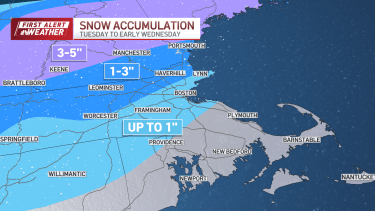No one showed up in court for either side.
Not for the victim, a 33-year-old immigrant killed in Pittsburgh last year by a drunken driver.
And not for the defendant, a 22-year-old woman who created a good life for herself and her twin sons despite a string of difficult life circumstances, including an incarcerated father and a mother with mental illness.
Maria Davis, of Uniontown, pleaded guilty on Tuesday to homicide by vehicle, aggravated assault and driving under the influence after police say she crossed the center line on Beechwood Boulevard last year, crashing head-on into Abdulaziz Sharibbaev and killing him.
Sharibbaev lived in Pittsburgh’s Westwood section at the time of his death. Law enforcement could not confirm where he emigrated from and were unable to reach any relatives for the court proceedings.
As part of a plea agreement, Davis will serve 16 to 32 months in custody to be followed by two years probation. Her attorney asked the court to allow his client to enter an alternative housing program, which the judge said she will consider after Davis has served at least 12 months.
She must also pay $3,500 in mandatory fines.
Davis was driving a black Hyundai sedan north on Beechwood Boulevard toward Squirrel Hill around 12:30 a.m. on March 11 when she crossed the center line and struck a silver Toyota Prius head-on, according to a criminal complaint.
Sharibbaev, who was driving the Prius, had to be extricated by medics.
He died from his injuries five days later.
Both Davis and a passenger in her car were taken to local hospitals. The passenger sustained facial injuries and fractures from being thrown into the windshield.
A blood test showed Davis had a blood alcohol concentration of 0.163% — more than twice the legal limit for driving of 0.08%.
She also had marijuana in her blood, police said.
Birthday celebration
Defense attorney Adam Bishop told Allegheny County Common Pleas Judge Simquita R. Bridges that his client had been raised primarily by her great-grandmother after her father was incarcerated and her mother could not care for her.
After her great-grandmother became ill, Davis had to return to live with her mother at age 14, Bishop continued. Three years later, she moved out.
Davis had no prior criminal history and worked as a certified nursing assistant at a facility in Uniontown, Bishop said.
The night of the crash, she and friends were going out to celebrate her birthday.
Davis had gotten a babysitter, drove to Pittsburgh and attended a baby shower that day before checking in to a hotel room.
At the shower, Davis had a shot of tequila and shared a glass of wine, Bishop said. Then, when Davis returned to the hotel to get ready for her night out, she had a couple more shots.
Davis and her friend arrived at a bar called Eon in Homestead and were waiting outside in line for more than 90 minutes when a fight broke out, Bishop said.
One of the men involved made threats, Bishop told the judge, and fearing he would return with a gun, Davis and her friends left.
Although she had not planned to drive any more that night, Davis got in her car to follow another friend to a bar in Greenfield, the attorney said.
The two vehicles got separated in traffic, Bishop said, and the friend texted Davis the address for the bar.
She was trying to type the address into the GPS on her phone when she crossed the center line and crashed, according to Bishop.
“It was that act of distracted driving, in conjunction with her intoxication,” Bishop said, that caused the crash.
Bishop described Davis as extremely remorseful and said she accepts full responsibility for her actions.
“She got dealt some bad cards in life,” Bishop said, but still managed to make a good life for her sons, who will turn 2 next month.
“One night can change everything,” he said.
A ‘poor decision’
No one was in court to describe the impact of Sharibbaev’s death.
Davis told the judge she is sincerely sorry.
“I would never purposely hurt somebody,” she said. “I ask that his family accept my apology. For as long as I live, I hope they can forgive me at some point.”
Davis told the court she is trying to learn from what happened.
“I tried all my life to be a good person and stay on the right path,” she said. “This night, I just made a poor decision.”
But Assistant District Attorney Jameson Rohrer said it wasn’t just one bad choice.
“This was a series of decisions that (ended) a man’s life and permanently changed the lives of the defendant and her children,” he said.
Bridges agreed.
“You are a textbook example of why drinking and driving is illegal,” the judge said. “Good people sometimes make bad choices. That doesn’t make you a bad person.
“Your life isn’t over because of this. You can pick yourself up and move on.”








































